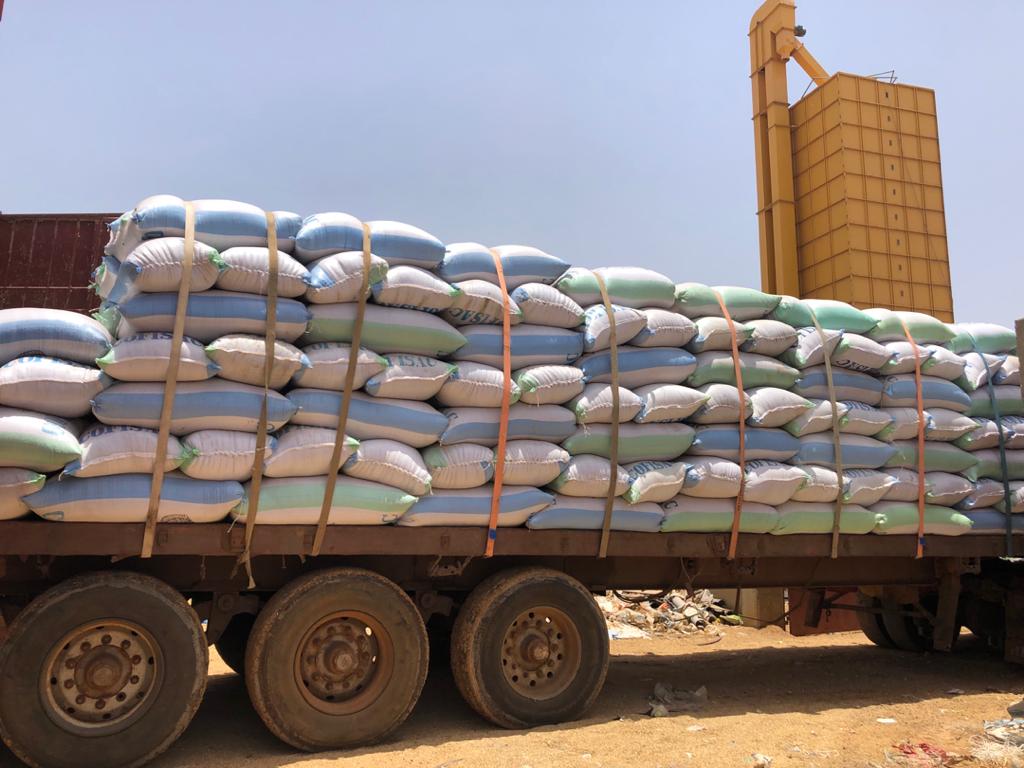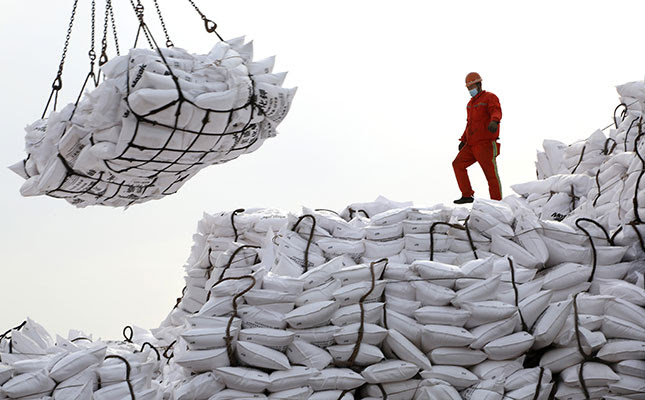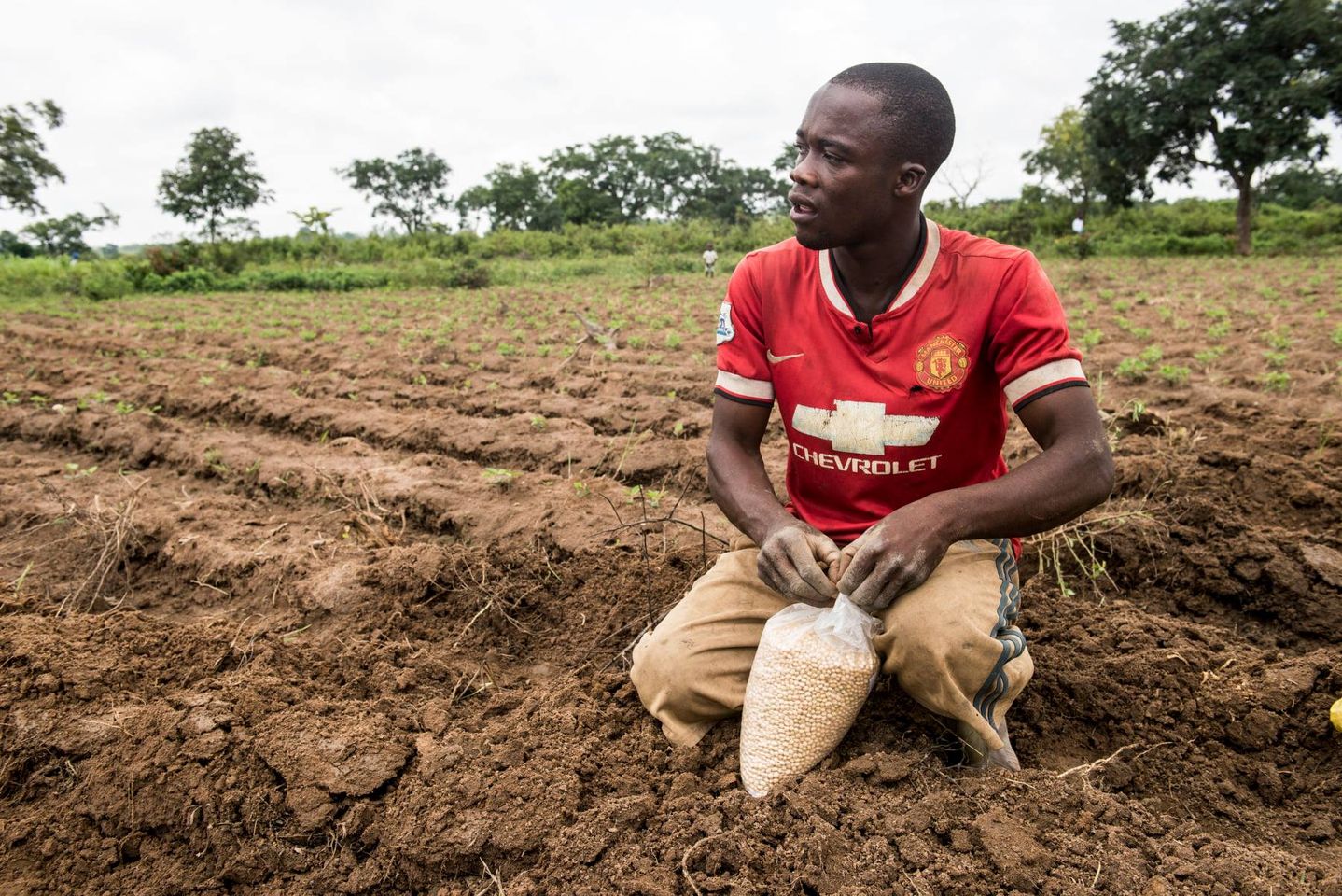USAID’s West Africa Trade and Investment Hub partners with high-performing private-sector companies to improve food insecurity in West Africa
By Robin Wheeler
Abuja, Nigeria – Many people around the world might find it difficult to pinpoint the specific ways the conflict thousands of miles away between Ukraine and Russia is impacting the global economy. The way it is impacting their everyday lives, however – through price increases of fuel and staple products, the scarcity of certain items, and the difficulty in maintaining even a basic standard of living — is a topic of everyday conversation here in West Africa.
Understanding the interconnectedness of our global lives and the reality that Russia and Ukraine together export around 30 percent of the world’s wheat and barley, one-fifth of its maize, and more than half of its sunflower oil, allows a better appreciation of the ways the conflict is hitting home for all of us and impacting food security in many nations.
While the impacts of the Ukraine conflict are considerable and unavoidable, through the West Africa Trade and Investment Hub, funded by the U.S. Agency for International Development and its co-investment partners that are working in the region, there have been significant positive changes to the agricultural and economic landscape of the region. Our partners specifically focus on reducing dependence on foreign supplies of staples such as rice and have been able to “rise to the occasion” through higher domestic production and import substitution to provide some level of insulation from the impacts.
The Trade Hub’s efforts to support economic growth at country and regional levels in West Africa are rooted in a commitment to improving livelihoods and food security in communities and households. The Trade Hub assists smallholder farmers to produce higher yields, increase their incomes and improve nutrition, particularly those directly affected by the COVID-19 pandemic. It also engages the private sector to further support food security efforts and invest in the agricultural sector. In addition, the Trade Hub promotes measures to ensure access to healthy, safe, and nutritious foods, as well as activities that support sustainable practices and job creation, especially for women and youth.
For example, in Senegal, Enterprise Aïssatou Gaye, a woman-owned Trade Hub co-investment partner, aims to reduce the nation’s dependence on imported rice, while La Laiterie du Berger is improving and increasing the availability of fresh and nutritious dairy products in the region. This is a key contribution considering the increased costs associated with processing, storing, and transporting fresh dairy products. Now more than ever, the importance of such developments is key to allowing the region to thrive through self-reliance and improved sustainable agricultural development.

Fonio, a nutrient-packed ancient grain that is native to West Africa, is easily cultivated and attractive as an export for markets seeking viable replacements for well-known cereal grains, such as wheat and barley. When considering food security, the benefits of fonio have long been known in the region, as it is key to weathering challenges presented by seasonal changes, drought, pests, and nutrient-depleted soil. The Trade Hub is partnering with several companies in the region, including La Petite Damba (Guinea), Biosene (Senegal and Burkina Faso), AMAATI (Ghana), and Mali Shi/Yolélé (Côte d’Ivoire, Mali, and Senegal), to establish a new, West African, global value chain for fonio that will improve access to this “superfood” throughout the region.
As I write this, it is the rainy season in most of West Africa, the time for farmers to fertilize and seed their fields. Eastern Europe, particularly Ukraine and Russia, is a major global supplier of agricultural inputs, especially fertilizer and its raw materials. Therefore, it is quite timely that a recent second Trade Hub grant to OCP Africa Fertilizers Nigeria Limited is allowing the company to manufacture and deploy smart, site- and commodity-specific, blended fertilizers, providing smallholder farmers throughout Nigeria with better and safer access to fertilizers that will improve their yields and profits, positively impacting the issue of food security. Premier Seed, the oldest seed company in Nigeria and a co-investment partner, has long been known as the region’s major supplier of quality agricultural inputs. Through efforts to increase the production and distribution of improved maize, rice, soybean, and cowpea seeds, this partnership is directly impacting the availability of quality crops.

Several partnerships are allowing companies that specialize in soy to improve and expand their businesses, including Togo-based Agrokom and new Trade Hub co-investment partner Seraph Nigeria Limited. Such partnerships are allowing the growth of one of the region’s most promising exports and solutions for regional food security. IITA BIP’s project to accelerate the production of a new variety of high-yielding soybean seeds for uptake by commercial seed companies in Nigeria is improving farmers’ access to improved seeds and thus helping to boost food security and increase investment in Nigeria’s agricultural sector.
The Trade Hub is also currently proposing the approval of nine more food security-related grants to private businesses in Nigeria, the largest economy and consumer, to spur the production of more food locally.

Having led major food security programs in the past, including as the Regional Food Security Advisor for the United Nations World Food Programme, I am passionate about ensuring sustainable agricultural development and food security, particularly in West Africa. I believe the solutions to many of the challenges will come about through the self-reliance and capability of the citizens with the support of those who can bring innovative ideas and supply knowledge that has been gained through successful ventures and applied research.
The work of the Trade Hub is, in essence, to be a part of building the region so that in challenging times like these, the people in West African nations will have established the self-reliance, infrastructure, and tools to sustain their communities to continue to conduct business and to keep their livelihoods intact, despite the fluctuations that come from elsewhere on the globe.
Robin Wheeler is the Chief of Party for the West Africa Trade and Investment Hub. Learn more about Wheeler and his path to becoming the Trade Hub’s COP in this Q&A.

